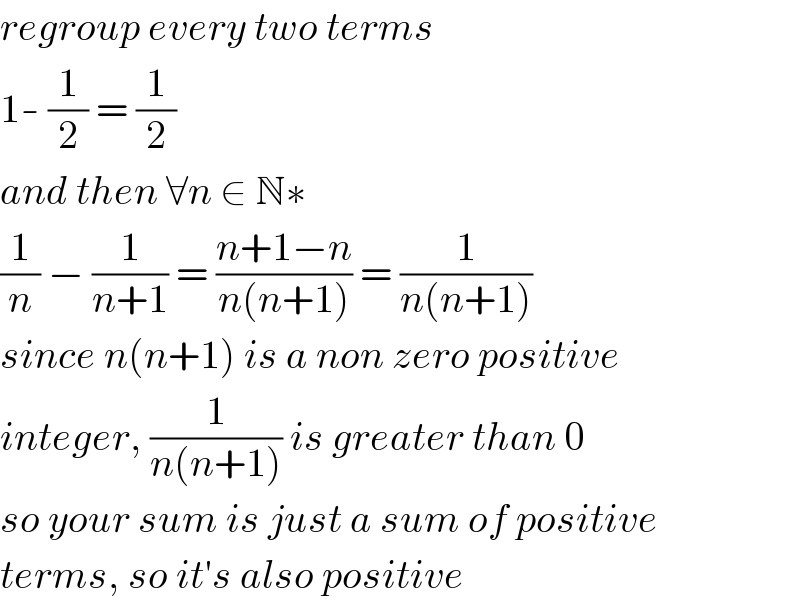
Question and Answers Forum
Question Number 95473 by aurpeyz last updated on 25/May/20

Answered by EmericGent last updated on 25/May/20

Commented by aurpeyz last updated on 06/Jun/20

| ||
Question and Answers Forum | ||
Question Number 95473 by aurpeyz last updated on 25/May/20 | ||
 | ||
Answered by EmericGent last updated on 25/May/20 | ||
 | ||
| ||
Commented by aurpeyz last updated on 06/Jun/20 | ||
 | ||